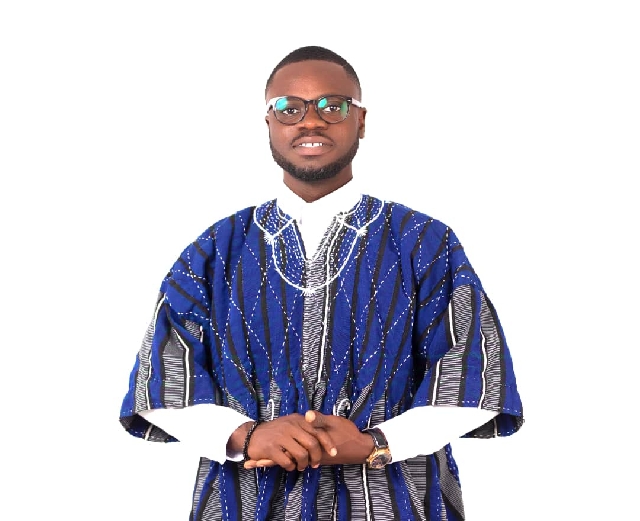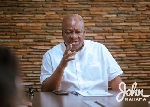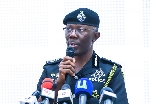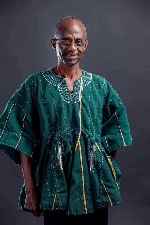Election 2024: Debate or no debate
 Ferdinard Adjei
Ferdinard Adjei
It’s that time again for political fanatics as presidential aspirants project their policies through campaigns, an integral aspect of democracy that builds election euphoria. Ghana is revered for its practical demonstration of democracy, a prestigious feat the country holds in high regard.
The maturity of Ghana’s democracy is evident in the smooth and peaceful alternation between the two major political parties in closely contested elections in the years 2000, 2008, 2016, and 2020.
Several African countries have looked to Ghana’s style as a model.
As the 2024 general election approaches, a key feature that has become common practice under the Fourth Republic is the presidential debate.
Debates have generated significant talking points, allowing for the proper scrutiny of policies presented by presidential aspirants.
Digital and print media often use these debates to generate headlines and discussions, while swing voters base their decisions on the candidates' performances.
In essence, presidential debates serve as a crucial democratic tool for transparency, voter education, and the healthy competition of ideas.
Arguably, the 2012 presidential debate, organized by the Institute of Economics Affairs (IEA), has been described as the best and most keenly contested debate in Ghana's history.
It featured the then-incumbent and former president H.E. John Dramani Mahama (NDC), the current president H.E. Nana Akufo-Addo (NPP), Dr. Abu Sakara (CPP), and Hassan Ayariga (PNC).
The build-up to the 2012 elections was intense, with rising tensions between the two dominant parties, NPP and NDC. It was a night to remember; you had to be there to witness the electrifying atmosphere.
The practice of holding debates prior to elections has even transcended to tertiary and second-cycle institutions.
Some schools of thought argue that debates primarily favour extroverts, asserting that candidates who are more vocal can persuade voters with their eloquence.
In recent times, it has become challenging to organize debates involving presidential candidates, particularly from the NPP and NDC, depriving the electorate of the opportunity to witness intellectual discourse among aspirants. This absence has taken away some of the beauty of the democratic process.
As the 2024 general elections draw closer, the populace eagerly awaits whether a presidential debate will be organized.
The ruling party, NPP has challenged the NDC flagbearer, John Dramani Mahama, to a debate.
Will we witness a debate this year?
The dynamics of the 2024 election bear similarities to those of 2012.
The incumbent vice president and NPP flagbearer, Dr. Mahamudu Bawumia, ascends in a manner reminiscent of John Dramani Mahama’s rise in 2012 when he, too, transitioned from vice president to president.
On the other hand, John Mahama is seeking re-election to complete his constitutional second term, a decision that NDC faithful have described as "Sankofa," meaning "to go back and retrieve."
Interestingly, the 2024 U.S. presidential elections share similarities with Ghana’s.
The contest is between former president Donald Trump and the incumbent vice president Kamala Harris.
The recent U.S. presidential debates have garnered significant public interest, topping trends with widespread discussions in their aftermath.
The commentary from voters and media alike has heightened anticipation for the election results. Could the outcome of the U.S. election have any implications for Ghana's election?
On October 15, 2024, in Tamale, the President of Ghana, H.E. Nana Akufo-Addo, accused Mahama of avoiding a debate.
“Why is Mahama running away from the debate?
Bawumia says he is ready for the debate any day. So why is Mahama running away?” the president quizzed. Mahama responded subtly, saying, "I know my level; I won't elevate Bawumia by debating him."
This remark was met with rapturous applause from NDC supporters at the campaign grounds.
From a neutral perspective, debates offer voters the chance to hear directly from candidates about their policies, visions, and plans.
This allows voters to make more informed decisions by comparing candidates on various issues.
Through debates, candidates often clarify their policy positions on key issues like the economy, healthcare, education, and foreign affairs, helping to resolve any ambiguity or uncertainty surrounding their proposed solutions.
Debates hold candidates accountable for their past statements, records, and promises, as they are challenged by both opponents and moderators, exposing any inconsistencies or shortcomings.
A good debate stimulates political interest and increases voter engagement, particularly among those who may not have been closely following the election.
The Cynics also assert that debates do not reflect reality but rather a projection of personal interest and image.
To them, they believe debates are just a competition organized to generate trends and talks; thus, it has no significance in elections.
With barely 45 days until Election 2024, will we witness a debate?
The article is an independent commentary, with no ties to any political organization.
Ferdinard Adjei is a communication specialist and writer, who leverages expertise to drive education initiatives and social change. [email protected]
Source: Ferdinard Adjei
Trending Features

Resetting Ghana together: A call to unity of purpose for dear nation
09:32
Owula Mangotey cautions Akufo-Addo against plans to sack Dampare
11:31
The resilience of women entrepreneurs and stratcomm Africa’s 30-year journey of impact
17:46
Court ruling on re-collation flawed
12:31
Happy Birthday to a mentor, godfather, experienced politician and distinguished leader - Johnson Asiedu Nketiah aka Chairman General Mosquito
00:38



